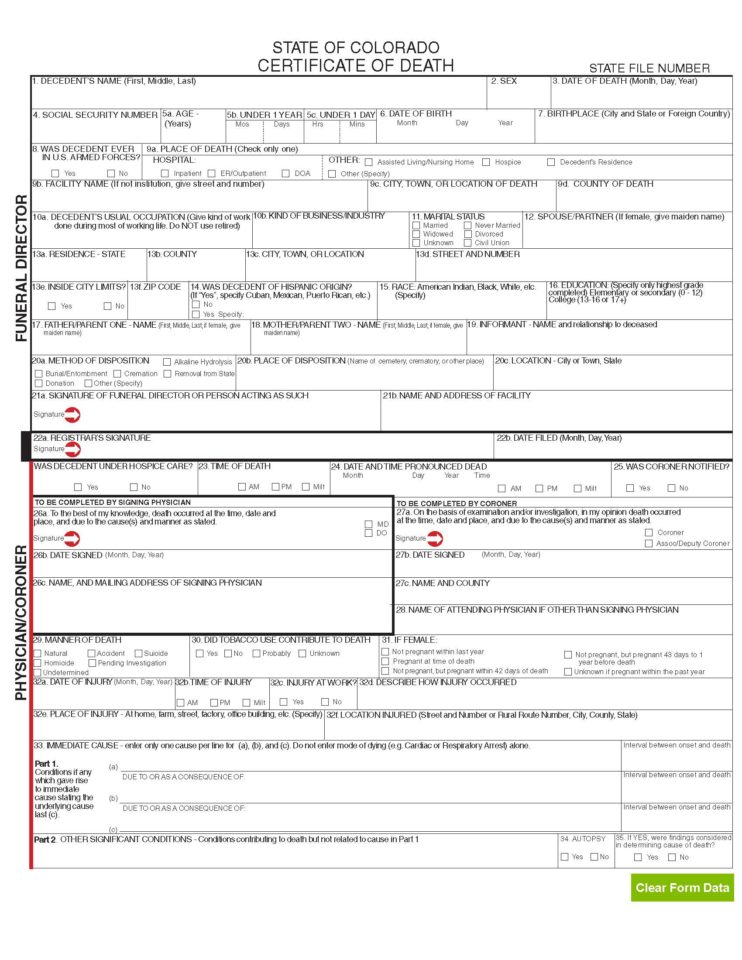By order of Sheriff Darren Weekly, Stage 1 Fire Restrictions are in place for unincorporated areas of Douglas County. Ordinance No. O-012-004 restricts open fires, open burning, and the use of fireworks in the unincorporated areas of Douglas County.
By order of Sheriff Darren Weekly, Stage 1 Fire Restrictions are in place for unincorporated areas of Douglas County. Ordinance No. O-012-004 restricts open fires, open burning, and the use of fireworks in the unincorporated areas of Douglas County.
 There are several reasons why you may need to obtain a death certificate. Most often, it’s to serve as proof of death for legal purposes.
There are several reasons why you may need to obtain a death certificate. Most often, it’s to serve as proof of death for legal purposes.
These reasons may include:
In general, the death certificate is the decedent’s signature in death, as it was in life, and gives the legal next of kin, or personal representative, those rights to open accounts/benefits and close accounts/stop payments.
The Coroner decides who will sign the death certificate. In Douglas County, if the manner of death is homicide, suicide, accident or undetermined, the coroner will sign. If the manner of death is natural, the coroner will decide if the decedent’s primary care physician, attending physician or coroner will sign the death certificate. If the body is autopsied by the coroner, the coroner will always sign the death certificate.
Death Certificates are confidential per Colorado state statute. As a result, Colorado vital records are not public records and therefore not searchable online. Access to copies of Colorado death certificates are restricted to the decedent’s parents, grandparents, step-parents, siblings, spouse, adult children, stepchildren or grandchildren of the deceased, legal representatives of any of the above, legal representatives of the deceased, probate researchers, genealogists….
The state of Colorado issues two types of death certificates. One protects your privacy.
Everyone who dies must have a death certificate issued.
In general, the process begins at the funeral home. When you meet with the funeral director, they will ask you for family information, military information, occupation information, and indicate how you want to proceed with final disposition.
The next step is completed when the coroner directs the funeral director where to electronically send the death certificate for medical certification. If the coroner directs the funeral home to send the death certificate to the primary care physician or the attending physician, by law, that physician/coroner has 48-hours to get the death certificate back to the funeral director. The funeral director then has a total of five-days, including the 48-hours, to send the death certificate back to the state for certified copies. 25-2-110 CRS
Generally, the state takes a few days to make the paper copies available for the decedent’s family or the funeral director to pick up.
By law, you should have your simplified death certificate shortly after 5-days, and if an investigation with autopsy is not involved, you should have the standard death certificate in the same time frame. However, if an investigation and autopsy is involved, you will have to wait 4-6 weeks for the standard death certificate.
You cannot get the death certificate from the Coroner’s Office; it comes directly from the funeral home or from Vital Statistics.